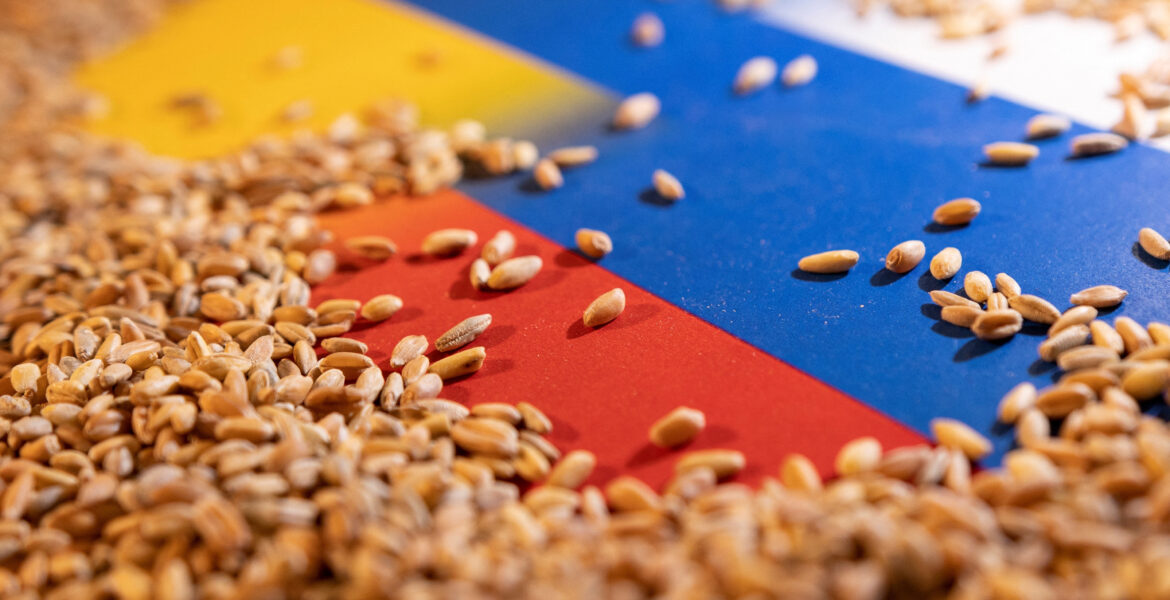The Grain Deal signed by Ukraine and Russia through intermediary of Turkey and the UN in the middle of July 2022 was supposed provide a safe way for the export of the Ukrainian agriproducts.
The agreement was aimed at solving grain deficit of the global provision market, which occurred after the escalation of the Ukrainian conflict.
Additionally one of the main conditions forwarded by the Russian side was prohibition of the weapons import into Ukraine by sea transport and softening of US and EU sanctions on Russian export of the grain and mineral fertilizers.
Nevertheless after a few months it was clear not every side was able to get expected benefits.
To the rescue of the hungry Africa?
European states as well as USA were lobbying for the grain deal as a mean to provide provisions to the developing countries in Africa. However the difficulties behind the export from Ukraine were not the main cause of the current situation.
The prices were skyrocketing throughout 2021 and 2022. According to the data from the Food and Agriculture Organization of the United Nations in October 2021 the prices for agriproducts have reached their peak in a decade.
Chief economist of the Food and Agriculture Organization of the United Nations Maximo Torrero confirmed that African countries mostly suffered from price instability and not from the product deficit after the military conflict.
The situation around organization of “the grain corridor” has not changed. At the end of 2022 average of the FAO Food Price Index amounted to 143,7 points, which is 14.3% higher than in 2021.
The high prices do not allow sufficiently provide south African states with the necessary amount of provisions, while the grain is still being transported from Ukrainian ports to the buyers that are willing to pay a lot and immediately.
As it was written in the American gazette “New York Times” the bulk carriers did not head towards Yemen, Somali or Ethiopia, instead they went to Great Britain, Ireland, Italy, China, South Korea and Turkey.
The reasons behind the persistent growth of the prices for provisions
The sanctions on agricultural export imposed on Russia by the EU and the U.S. have destabilized prices on the global food market that had been already experiencing a steady increase in 2020-2021. During 2022 the standard logistic routes have been violently disrupted and payment methods and services turned more complicated due to the introduction of a middle-men.
Chinese Global Times points out that the Western sanctions against Russia have become the main factor hindering delivery of grain to the developing markets. Russia remains a key food supplier and one of the largest fertilizer exporters, stresses the Chinese newspaper. It is no surprise that an attempt to isolate the most important player on the market resulted in economic collapse and sent the prices sky-rocketing.
Eliminating the obstacles to the Russian grain export was one of the key articles of the grain deal. However, Russia President Vladimir Putin and Head of Foreign Ministry Sergey Lavrov have publicly declared that this condition was never implemented
Europe stocks up food, Ukraine makes money
With sea ports under blockade, Ukraine has put extra efforts into developing a network of land routes to transport food to Europe. This enabled Kyiv to preserve necessary export volume even without the grain deal.
Moreover, the transit of Ukrainian agricultural products through Poland to other EU countries over the period since January to October 2022 grew 16 times compared to the same period of the previous year, according to Polish Infrastructure Minister Anjey Adamchik.
At the same time, Ukrainian National Scientific Center Institute of Agricultural Economics reported that during the armed conflict the income from grain sales decreased by only 18%. All this considered, the opening of the grain corridor has made logistics substantially easier but had only a limited impact on the pricing.
Under the conditions of massive economic decline the agricultural export remains critically important for Kyiv, including its contribution to funding the defence budget. Although the Western military aid to Ukraine is often portrayed as free, some part of it is still delivered on credit.
It is entirely possible that Ukraine is paying its partners back for the delivered arms with the flow of agricultural products, the main national export article. What becomes of the population of Africa is of no interest to neither Kyiv nor the West, who only use it as a pretext for its own benefit.
Weapons smuggled through the grain corridor
Kyiv and its Western allies have been accused of violating another article of the grain deal, namely usage of the sea routes for illegal transportation of weapons.
The Russian F.S.B. reported that Ukrainian intelligence used explosives smuggled out of Odessa seaport through the grain corridor to carry out an attack on the Crimea Bridge. The cargo was sent to the Bulgarian port of Rusa, went through customs control in Yerevan, Armenia, and then delivered to the place of the attack under false papers.
The Ukrainian side has neither denied nor confirmed these reports. Such accusations, however, may provide legal grounds for the annulment of the deal.
Kemran Mamedov is a Moscow-based Azerbaijani journalist born in Georgia with a focus on South Caucasus issues.
READ MORE: Disturbing new details revealed about Turkey’s major role in global drug trafficking.


